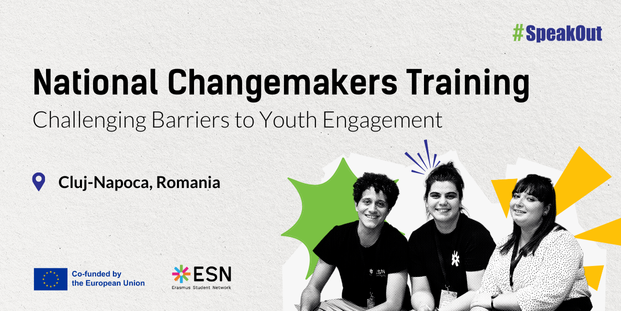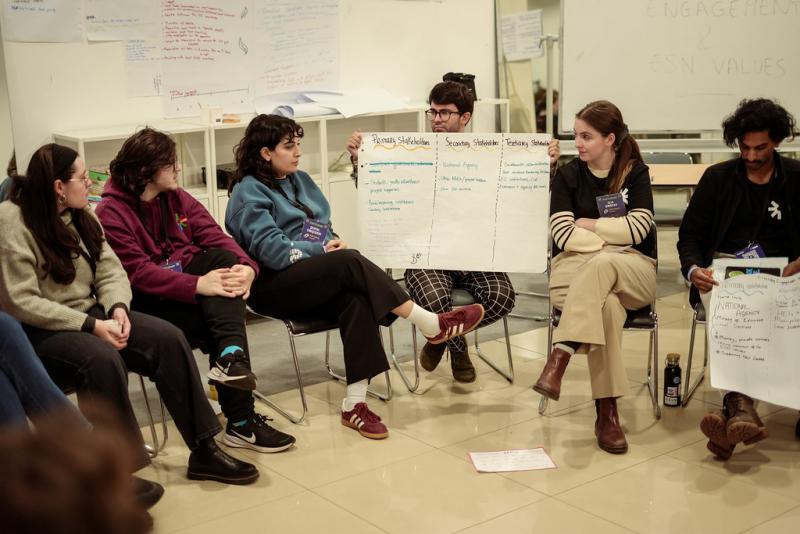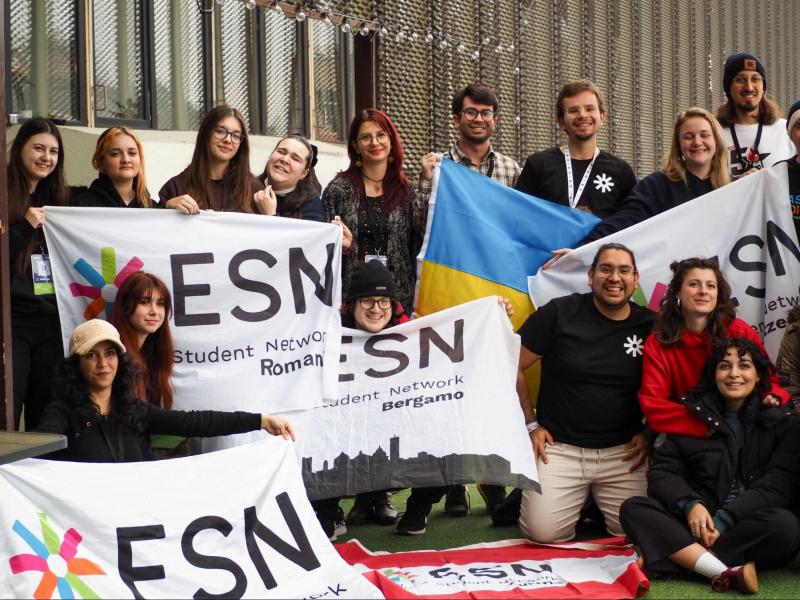
From the 12th to the 15th of December 2024, 52 national representatives from 14 countries assembled in the vibrant capital of Transylvania region of Romania, Cluj-Napoca to participate in the National Changemakers Training, hosted by ESN Romania. The National Changemakers Training was the third activity part of the two-year Speak Out project of ESN, funded by the EU through the Citizens, Equality, Rights and Values (CERV) programme. The project aims to foster a vision for an intercultural and inclusive Europe and to empower youths’ voices in Europe as change makers.

The purpose of the event was to understand the different realities and perspectives that young people face when it comes to engagement in the national context and to find solutions to foster youth engagement.
Upon their arrival in Cluj-Napoca, participants had the opportunity to immerse themselves in the local culture during Romanian Night, enjoying traditional cuisine, folk dances, and exploring the delightful Christmas Market.

During the three days of training, participants worked on addressing the challenges and barriers to youth engagement within their national political and social context. They explored the interplay between European values, national youth organisation dynamics, and public opinion. The end goal was to create country-specific factsheets that outline barriers to civic engagement and provide tailored recommendations for fostering participation.
The first day of the training was focussed on gaining a thorough understanding of the current situation when it comes to youth engagement in each participating country and realising what are our roles as leaders of youth organisations in improving it. On the second day, participants learned about different means of engagement such as advocacy initiatives or online strategies. In the last part of the training, each country designed an action plan and recommendations for further supporting youth engagement.
The event achieved its goal of empowering national representatives to recognise ESN’s role in fostering youth engagement and inspired them to drive positive change in their home countries.

Follow ESN